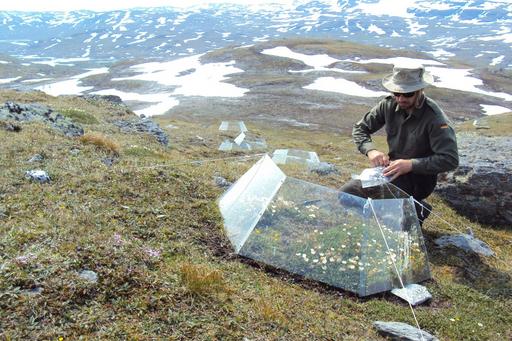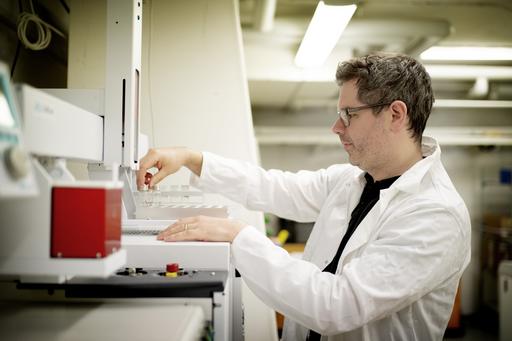Earth Surface Processes
Earth Surface Processes is one of the strong research areas at the Department of Earth sciences. Here, our researchers focus on ecosystem science, geomorphology, hydrogeology and biogeochemistry. Our study areas are global, and there is a particular focus on high latitude and high altitude regions, as well as Sweden's cities, forests and peatlands.
Research areas
The sustainable management of natural resources is arguably one of the biggest challenges facing our modern society. Our research in Earth Surface Processes aim to develop and sustain a multifunctional landscape (under global change), with space for biodiversity preservation, natural resource/food, fiber and water production, and carbon storage.
Some of our current research activities focus on changes in landscapes and their ecosystems under changing land-use and climate. We study, among other things:
- Glacial landforms
- Permafrost dynamics
- Tundra vegetation change
- Energy and matter flow on landscape level (hydro- and atmosphere)
- Greenhouse gas fluxes
- Peatland changes
- Soil processes
Research groups
Alpine and Polar Ecology at the University of Gothenburg (APE@GU)
Alpine and Polar Ecology at the University of Gothenburg (APE@GU) seeks to provide new knowledge on ecosystem functions in the Alpine and Polar context, using long-term experiments together with mechanistic laboratory experiments.
Visit the Alpine and Polar Ecology Group web page

Biogeochemistry Group
The research group investigating the (re-)cycling of nutrients in terrestrial ecosystems, which occurs in the soil-plant-microbe system. The main focus is on the gross soil dynamics of nitrogen and phosphorus, as well as the production of biogenic greenhouse gases.
Visit the Biogeochemistry Group web page

Hydrogeology Group
The Hydrogeology Group is involved in fundamental research, teaching, and stakeholder activities in the field of hydrogeology, contaminant hydrogeology and hydrogeochemistry. This research focus on two main topics: fresh water resources under changing environmental and climatic conditions , and the behavior of contaminants in the subsurface.
Visit the Hydrogeology group web page
Regional Climate Group (RCG)
The Regional Climate Group (RCG) studies climate at regional-to-global scales. CG has a unique profile combining modern- and paleo-climate studies within the Swedish climate research community and an international reputation in the fields of regional climate dynamics and climate change.
Visit the RCG - Regional Climate Group web page
Research funding and collaboration
Research projects within this research are are mainly funded by the Swedish Research Council, Formas, the Swedish National Space Agency, STINT, Horizon 2020, BECC and MERGE.
Research methods
Studies in the area of Earth Surface Processes are carried out mainly through long-term field experiments, process-oriented laboratory experiments, climate modelling and remote sensing.



